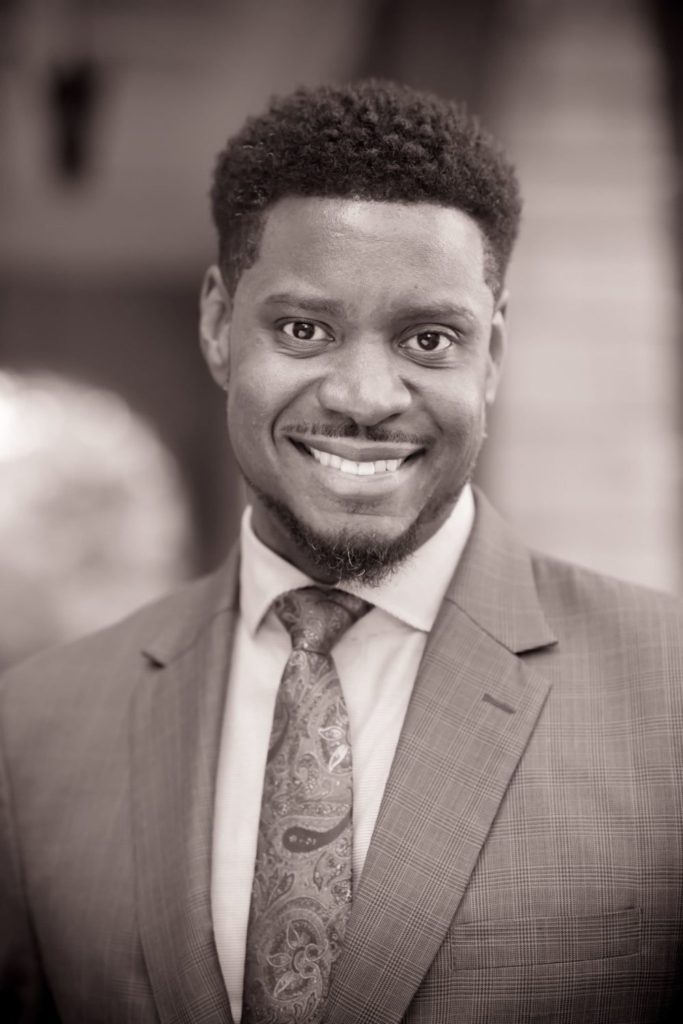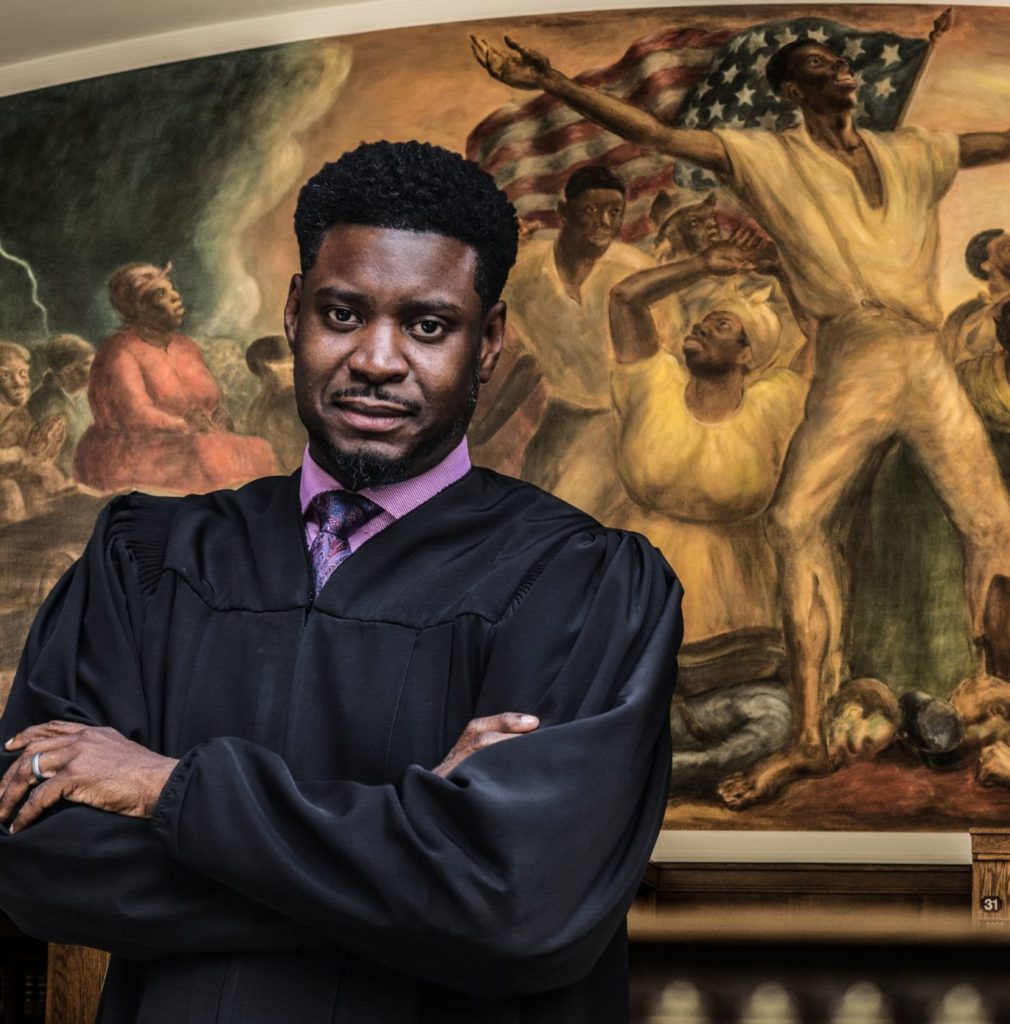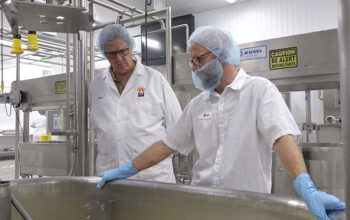For Everett Mitchell, a Dane County Circuit Court Judge since 2016, one of the traits that he says makes a good judge is curiosity.
“It's never rubberstamping what people do, but rather be curious upon every hearing that you have. As long as you remain curious, you continue to ask the right questions, the best questions, the thoughtful questions and you push," he says, "and the community can bring the best out of what we can do.
“When I started, for example, I was pushing to take handcuffs off of kids. Now, it’s amazing that this is the culture now. The culture is that kids can come to court with no handcuffs. That shift is possible," Mitchell adds. "As long as we maintain our sense of courage and strength, the resolve ultimately will be that we can see these kinds of changes long-term.”
Last week, Mitchell stepped into a new role that he is pretty excited about - he is now the presiding judge of the juvenile division for Dane County. There is a presiding judge over each division - criminal, juvenile and civil courts.
“I still have my regular caseload. I’m still a juvenile judge. But this comes with a little bit more of the administrative task to be the liaison and to help coordinate - kind of like a vision for juvenile justice," Mitchell tells Madison365.
That includes figuring out ways to connect the Child Protective Services and the juvenile justice sides to work together to support families and children and work with community partners.
“We work with our community partners and follow our statutory requirements protecting the public but also balancing the needs of these young people that we see coming through court,” Mitchell says. “It’s a lot of building relationships and trying to ensure that certain things are met appropriately. Hopefully, we will start to see some consistent outcomes that will assist these young people with meeting some of the goals they need to meet; not re-offending, not going to jail, and getting back on the path where they can be successful.”
Mitchell talks about reaching that important balance of getting young people on a good path or back on track in life while remaining cognizant of community protection for a public that desires accountability for a crime committed. ,
“One, we try to pay attention to all the different facets that encompass children’s lives - family, education, trauma, mental health, mental wellness, making sure they have opportunities for employment and all of the positive things like that that young people need to be successful," says Mitchell, who is also the pastor of Christ the Solid Rock Baptist Church. "By the time the majority of the young people come to the attention of our court system, they’ve generally been in the system for a number of years. So our job and our role is to ensure that whatever the young people need or whatever the families need, that we’re directing the departments to do that to get them the services they need.”
If they do offend, Mitchell says, it’s important to try to get them to understand the implications of creating victims and the pain of victims.
“We need to use the tools we have at our disposal to bring them into some awareness on why these actions are not in their best interests and that they hurt people,” he says. “What is sad for many of us in this role is that we see that many of these young people are hurting. We always say that ‘hurt people always end up hurting more people.’ We try to figure out how to stop the hurt.
“Being the first African American to be in this position means that I get an opportunity to bring the community into a conversation that I don’t think they’ve always been brought into," Mitchell continues. "Partners in our community are important. As you’ve noticed, there has been so much explosion over the last three or four years of agencies who have stepped out and are committed to supporting Black and Brown and low-income white families that need to be brought into a conversation of how the court partners with those groups."

Historically, judges - not just in Dane County but throughout the United States - have been overwhelmingly older white men that all too often bring an older-white-man perspective to the courtroom. Mitchell, along with Judge Branch 10 Juan Colas, new Judge Nia Trammell, the first Black woman in Wisconsin to serve as a judge outside of Milwaukee County, and others represent the diversity of the city and often bring a different perspective.
“The potential to have [Branch 1] Judge [Susan] Crawford, Judge Colás and now Judge Trammell in the rotation really does create a situation where we have people who are creative and passionate and empathic and caring and willing to reach out to do the work that needs to be done," Mitchell says. "This kind of work that we are talking about is so essential to changing the narrative of what is possible. Having those individuals in that place, it really does give me a sense of hope and optimism that we can create a balance between public safety and what’s in the best interest of these children and to support families.”
Mitchell believes judges should be active leaders in their local communities. But in the courtroom, there’s only so much judges can do, and the community needs to play their part to make sure that the young people are not locked up in prisons for the rest of their lives.
“Working with community partners that really care, it makes everything seem more possible ... working with Dr. [Ruben] Anthony, CEO at the Urban League for example," Mitchell says. "He was championing the idea of 'what can we do to get kids to stop stealing cars' and the kids were always talking about having a job and a place to work. He worked out internships for them and found a way to get a little money in their pockets so they wouldn’t have to steal or commit crimes.
"Just being around community members like that inspires me to keep thinking thoughtfully and knowing that it’s not impossible. We can come up with a plan," Mitchell adds. "COVID has hit us in a very awkward place because we don’t have as much contact physically, but I think as COVID lifts, we will begin to see different ways in which we can partner going forward to ensure that no kids fall through the cracks and that we are addressing all of their needs so they don’t have to keep falling through the system.”
That's why, Mitchell says, it's important to keep bringing community partners into the conversation on how they can work together and strengthen collaborations to help young people.
“During this tenure, I’m really excited about the opportunity of bringing in all of these beautiful people that have been working in the community who are often invisible to many in the community," he says. "It’s important that we bring them into the conversation on how we can partner together and strengthen those collaborations so the young people can see a continuum of all kinds of people who care about them and believe in them and support them. It’s important for them that they see a community that sees them, supports them and wants the best for them.”
Mitchell says that one of his goals with his new role as presiding judge of the juvenile division for Dane County is to continue to amplify the voices of young people in this process as they work towards solutions.
“We will be calling on young people who have successfully finished, and even young people who haven’t, and figuring out what did and did not work for them and then re-tweaking the system,” Mitchell says.
Youth and families, all too often, have needs that have long been unmet and mental health issues and multiple trauma experiences that cannot be ignored. It's important, as Mitchell says, that "we stop the hurt."
“Among judges, I’m hoping to build a sense of collegial understanding on the way we can approach cases and the work that we do to support our families," he adds. "Hopefully, we will stop more trauma being passed on to more children which ultimately creates more young people who are hurting who hurt more people because nobody has ever dealt with their pain.”





